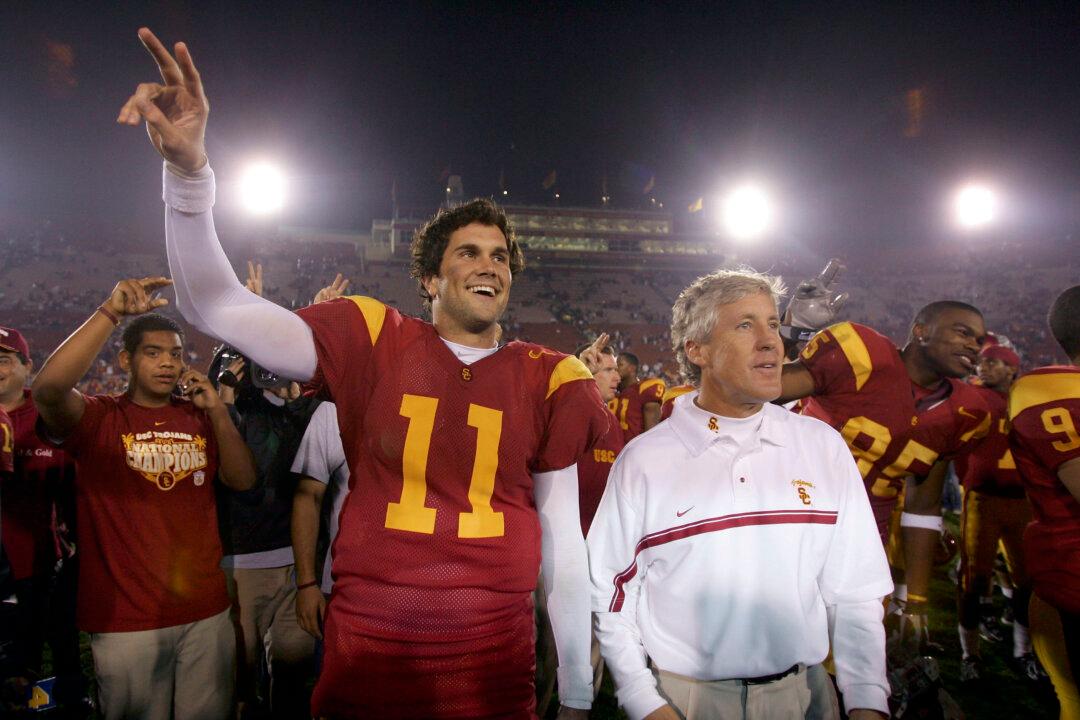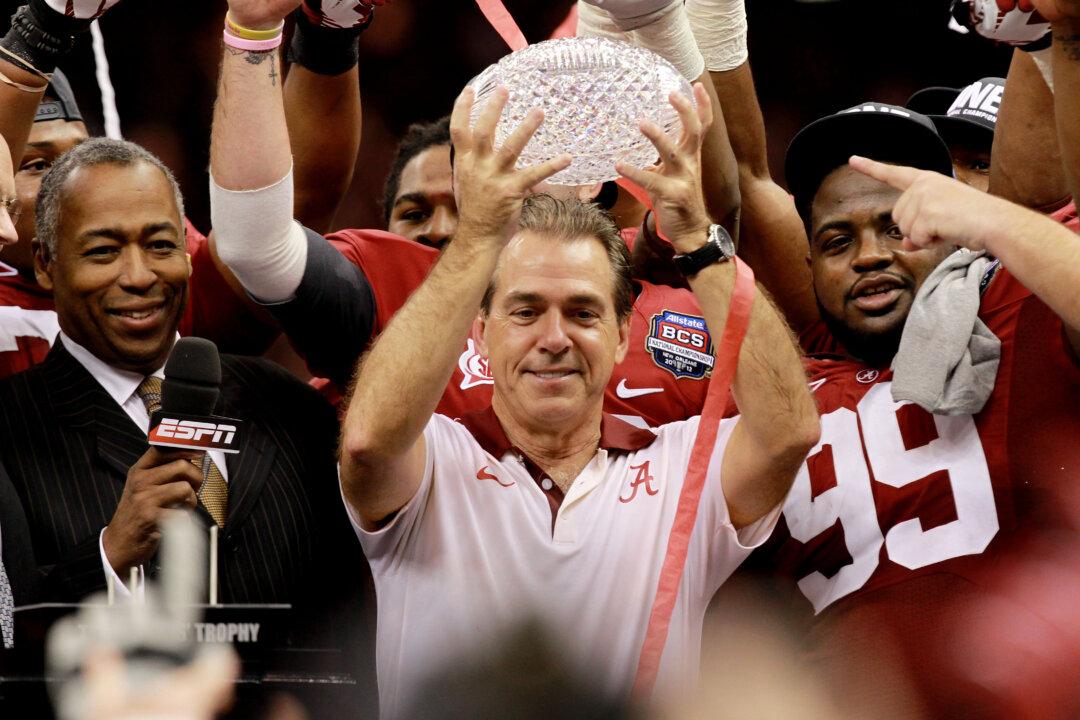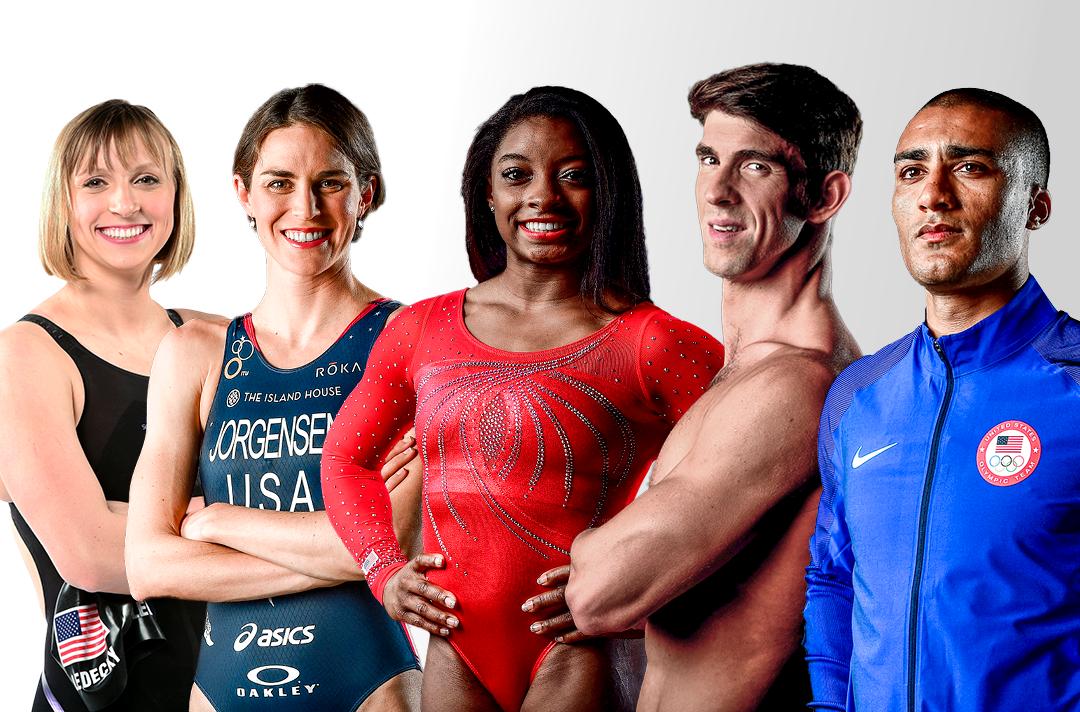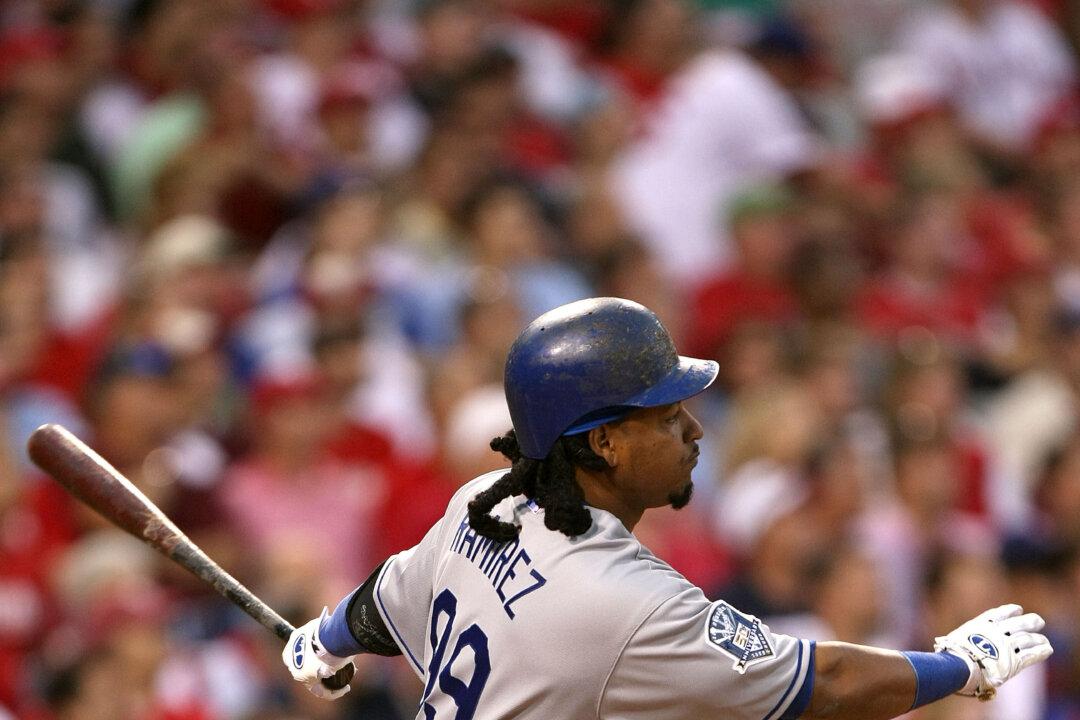College football’s much-maligned Bowl Championship Series (BCS) has taken a number of hits over the years due to the fact that it really only works if there are two clear-cut contenders for the title. The fact is that even though it didn’t work all that often, the BCS was still better than the previous system of bowl games working independently in an effort to get their own best matchups. The AP poll would then try to figure it all out at the end.
In any case, this is the final year for the BCS, which started with the 1998 season. Should the undefeated Seminoles beat Auburn for the title they would rank as one of the best teams to win the BCS. Who would they have to contend with? Here are the five greatest champions of the BCS era:
5. 2009 Alabama—14-0 record, average scoring margin: 20.4 (32.1 points scored, 11.7 points allowed), notable NFL talent: RB Mark Ingram, RB Trent Richardson, WR Julio Jones, DL Terrence Cody, LB Rolando McClain, LB Courtney Upshaw, DB Javier Arenas and DB Mark Barron.
Nick Saban has won four BCS title—twice that of anyone else—but this was his only unbeaten squad, despite a difficult schedule all around. The Tide started the season with a win over Virginia Tech (which went 10-3 that season) before running the table in the SEC.
In the SEC title game, Alabama got revenge on Florida for beating them the year before, routing Tim Tebow’s Gators 32–13. In the title against the Longhorns they caught a break when Texas QB Colt McCoy left early with an injury and was unable to return. The Tide took advantage and rolled to a 37–21 win for Saban’s second BCS title.
4. 1999 Florida State—12-0 record, average scoring margin: 21.3 (38.2–16.9), notable NFL talent: QB Chris Weinke, WR Peter Warrick, WR Anquan Boldin, WR Laveranues Coles, DB Tay Cody, LB Derrick Gibson, and DL Corey Simon.
Bobby Bowden had a lot of great teams, but only two came away with the national championship and this was his only undefeated squad. In fact, the Seminoles were wire-to-wire number-one in the AP poll.
The Seminoles had quite an air attack with Chris Weinke throwing to several future NFL receivers. The team scored 30 or more points in all but one of its 12 games. In the title game against Virginia Tech, Florida State had to contend with Michael Vick, but still came out on top 46–29.
3. 2005 Texas—13-0 record, average scoring margin: 33.8 (50.2–16.4), notable NFL talent: QB Vince Young, RB Jamaal Charles, DE Brian Robison, DE Brian Orapko, DB Michael Griffin, and DB Aaron Ross.
The Longhorns, despite running roughshod over nearly every opponent heading into the title game, were not expected to win it all. That’s because USC was busy routing most every team in their path—as they had done the previous season—and hogging all the headlines in the process.
Still, Texas had wins over Ohio State (25–22) as well as solving Oklahoma (45–12) before clobbering Colorado (70–3) in the Big 12 title game. Finally in the BCS championship match, Vince Young took center stage, rushing for 200 yards and throwing for another 267 yards as the Longhorns shocked the Trojans 41–38 in thrilling fashion.
2. 2004 USC: 13-0 record, average scoring margin: 25.2 (38.2–13.0), notable NFL talent: QB Matt Leinart, QB Matt Cassel, RB Reggie Bush, RB Lendale White, WR Steve Smith, WR Dwayne Jarrett, LB Lofa Tatupu, DB Terrell Thomas, and LB Keith Rivers.
The Trojans entered 2004 with a chip on their shoulders having been snubbed out of the BCS title game by the BCS computing method the season before. In any case, Pete Carroll’s guys put up 40 or more points seven times during the 13-game season, with just a few close calls in the process.
Most impressive about this run was the 55–19 clobbering of Oklahoma in the championship game. Amazingly the game wasn’t even as close as the score indicates. Though the Sooners led 7–0 early in the game, USC blitzed them the rest of the half taking an insurmountable 38–10 lead at halftime and were never challenged thereafter.
1. 2001 Miami: 12-0 record, average scoring margin: 32.9 (42.7–9.8), notable NFL talent: RB Clinton Portis, RB Willis McGahee, RB Frank Gore, WR Andre Johnson, OL Bryant McKinnie, TE Jeremy Shockey, TE Kellen Winslow, S Ed Reed, DB Antrel Rolle, DB Phillip Buchanon, DL William Joseph, DT Vince Wilfork, and LB Jonathan Vilma.
Larry Coker inherited a huge mass of NFL talent in 2001 when he took over for Butch Davis at Miami, who left for the NFL. Not only did the Hurricanes have enough talent at running back to run through nearly every opponent, only four of those foes managed to score more than seven points of their own.
In the title game against Nebraska, who made it there despite not even qualifying for their own conference title game, Miami blew out the Huskers 37–14. That game, much like USC’s sudden dismantling of Oklahoma three years later, was over by halftime, as the Canes led 34–0 at the break.





